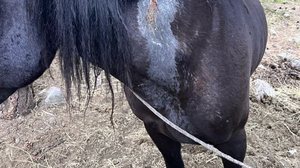
Albanian citizen Viktor Gjini has been convicted by a court in Viña del Mar, Chile, as part of an international organized crime structure. His case has brought attention back to the growing presence of Albanian mafia clans in Latin America, a phenomenon that, according to experts and investigators, is being underestimated by international authorities.
Although a report recently published by the American agency Bloomberg, based on analyses by the organization "Global Initiative against Transnational Organized Crime", mentions the spread of the Albanian mafia in Ecuador, Colombia and Peru, it does not mention Chile - an omission that, according to Chilean police and prosecutors, is unjustifiable, since traces of Albanian organized crime are also documented in this country.
Albanian crime in Chile: not an isolated case
The case of Viktor Gjini is not the only one that proves the presence of criminal elements from the Balkans in Chile. One of the most significant examples is the case of the MSC Gayane ship, which was seized in 2019 in the port of Philadelphia (USA) with 18 tons of cocaine on board, after a stop in Coronel, Chile.
According to the US DEA, the drugs were loaded onto the ship from small boats as it sailed between Chile and Peru. All of the crew members were Montenegrin, and they were led by Goran Gogic, a former boxer currently on trial in New York. In addition to the 18 tons seized, Gogic is suspected of trafficking another 2 tons of cocaine via ships departing from San Antonio (Chile) and Barranquilla (Colombia).
Expertise and organization of Albanian clans
According to organized crime expert Pablo Zeballos, Albanian clans are characterized by:
Family organization (Tribe) with internal divisions
Strict hierarchies
Specific dialects by province (called Hek)
Dual code of conduct: Kanun (written) and Besa (unwritten)
This system gives them a military structure, unconditional loyalty, and the ability to survive and dominate international criminal markets. Treason within their ranks is punishable by death, but it is carried out according to certain codes – for example, they are not allowed to kill other members of rival clans in their homes, in order to preserve a certain "internal honor".
Zeballos adds that many of the members of these groups come from the ranks of the military or intelligence services, and are trained to avoid tracking and surveillance.
The "Attila" clan and the international cocaine network
Another case that shocked Chile is that of George Dan Rusu, known locally as Geza Jungvirt or by the nickname “Attila.” He was arrested in 2004 during Operation Budapest, after organizing the smuggling of 1,319 kg of cocaine from Colombia, Ecuador and Peru to Chile, with the final destination being Argentina and Europe.
At Colina 2 prison, Rusu became one of the most powerful inmates and from there organized another sophisticated operation – Operation Carpatho (2009). The scheme involved a modified vehicle, posing as a Pentecostal church van, with signs such as “Jesus loves you” and “Don’t be afraid, Christ is with you”. Through this deception, he tricked several believers into traveling to Bolivia for a “mission”, while in reality they were transporting 150 kg of cocaine.
The Russian acted like a corporate executive, commanding everything from his cell. A wiretap showed an associate saying, “I’m going to meet with top executives — like in a company.” In fact, Thursday visits to the prison were times when he “waited for clients.”
The sentencing and extradition of "Attila"
The Russian and his partner Víctor Escobar Álvarez were sentenced to a total of 25 years in prison (15 for criminal organization and 10 for drug trafficking). In 2024, through the Strasbourg Treaty, he was extradited to Romania, where he is currently imprisoned in the city of Cluj.
Although he used different identities (Romanian, Hungarian), investigators believe he had direct ties to the Albanian mafia and perhaps even to Soviet-era secret services, similar to the case of Viktor Gjin.
cONcluSiON
The conviction of Viktor Gjini in Chile has shed light on a dangerous reality: Albanian organized crime clans are now deeply integrated into international drug networks in Latin America, including Chile. They use old codes of honor, military discipline, and family structures to control markets and exert influence even within the penitentiary system.
According to experts, it is time for international authorities to take the presence of the Albanian mafia more seriously, which is no longer simply a local network from the Balkans, but a key player in the global cocaine trade.






















